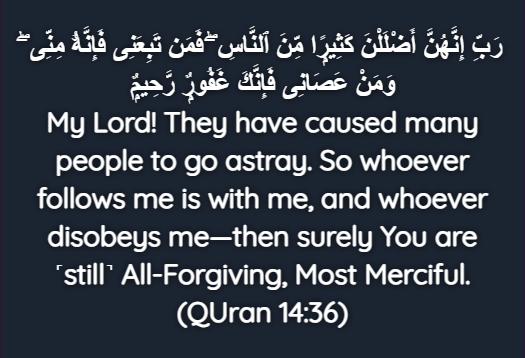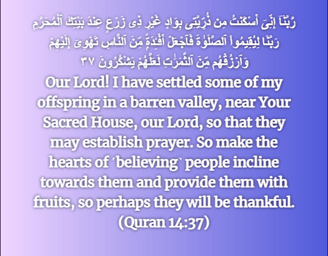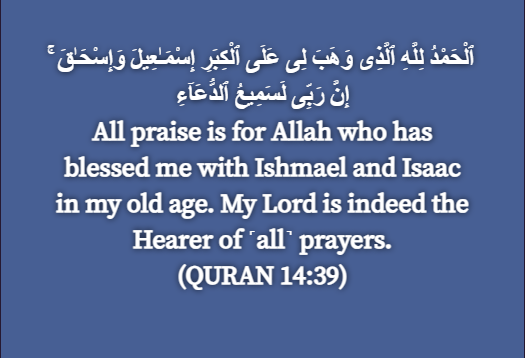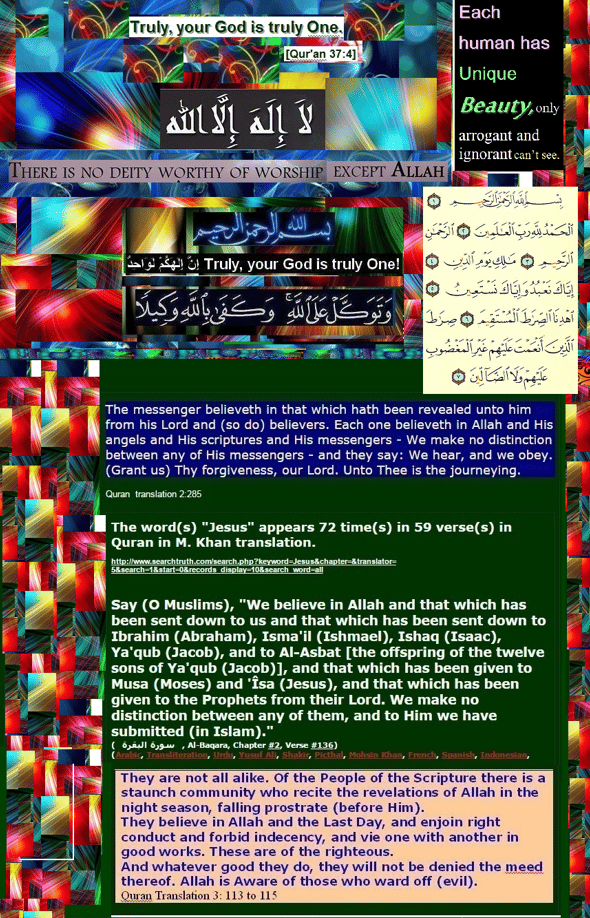IBRAHIM MONOTHEISM
Ibrahim, also known as Abraham, holds a significant place in the hearts of believers across major revealed religions: Judaism, Christianity, and Islam. Let me share some insights about this revered prophet:
Title and Significance:
Ibrahim was bestowed with the title “Khalilullah”, which translates to “the friend of Allah”.
He is considered the forefather of many great prophets and is held in high esteem by followers of various faiths.
Among the 25 prophets mentioned in the Quran, Ibrahim stands out as a central figure.
Monotheism and Hanif:
Ibrahim epitomized monotheism—the unwavering belief in one God.
In the Quran, he is described as a “Hanif”, which signifies someone who adheres to pure monotheism.
Despite living in a society steeped in idol worship, Ibrahim remained steadfast in his devotion to the one true God.
Early Life and Spiritual Awakening:
Born in the ancient city of Ur (now in Iraq), Ibrahim grew up in a household of idolaters.
His father was a renowned idol sculptor, but young Ibrahim questioned the validity of these stone and wood idols.
Gifted with spiritual understanding and wisdom from an early age, he rejected the false gods worshipped by others.
Tests and Resilience:
Ibrahim faced severe trials throughout his life, yet he remained faithful and obedient to Allah.
His unwavering commitment is highlighted in the Quran: “And of Ibrahim (Abraham) who fulfilled (or conveyed) all that (what Allah ordered him to do or convey)” (Surah An-Najam: 53:37).
Legacy:
Ibrahim’s legacy extends beyond religious boundaries.
He is one of the five prophets of Ulul’azm (Arch-Prophets), alongside Noah, Moses, Jesus, and Prophet Muhammad.
His story serves as an enduring example of faith, resilience, and submission to the divine will.




/CD-Quran with English
https://globle-in.com/massage-for-abrahamic-monotheism/
massage for Abrahamic monotheism
















The word(s) "ibrahim" appears 92 time(s) in 79 verse(s) in Quran in Mohsin Khan translation.
Quran Surah Al-An`am 6 – 106 t0 165 . This Surah English means
161. Say, “My Lord has guided me to a straight path, an upright religion,
the creed of Abraham the Monotheist, who was not a polytheist.”
162. Say, “My prayer and my worship, and my life and my death,
are devoted to God, the Lord of the Worlds.
163. No associate has He. Thus I am commanded,
and I am the first of those who submit.
164. Say, “Am I to seek a Lord other than God, when He is the Lord of all things?”
No soul gets except what it is due, and no soul bears the burdens of another.
Then to your Lord is your return, then He will inform you regarding your disputes.
165. It is He who made you successors on the earth, and raised some of you
in ranks over others, in order to test you through what He has given you.
Your Lord is Quick in retribution, and He is Forgiving and Merciful.
https://quran.com/en/al-anam/161-165
https://hamariweb.com/islam/download-Surah-Anam-arabic-translation-pdf
Surah Anam PDF
Surah Al-An`am is the 6 Surah in Quran Kareem with 165 ayat and placed in para 7 – 8. This Surah English means “Cattle”, you can download full Surah Anam PDF online which is published by Maktaba Tul Madinah. Reciting online Surah Anam PDF is also possible for readers by downloading and saving files to their devices.
Download PDF View PDF Online Listen Audio
https://www.youtube.com/watch?v=jOfjatghBoIhttps://m.clearquran.com/006.html

















































Surah Mariam 19
قَالَ إِنِّى عَبْدُ ٱللَّهِ ءَاتَىٰنِىَ ٱلْكِتَـٰبَ وَجَعَلَنِى نَبِيًّۭا ٣٠
Jesus declared, “I am truly a servant of Allah. He has
destined me to be given the Scripture and to be a prophet.
وَجَعَلَنِى مُبَارَكًا أَيْنَ مَا كُنتُ وَأَوْصَـٰنِى بِٱلصَّلَوٰةِ وَٱلزَّكَوٰةِ مَا دُمْتُ حَيًّۭا ٣١
He has made me a blessing wherever I go, and bid me
to establish prayer and give alms-tax as long as I live,
وَبَرًّۢا بِوَٰلِدَتِى وَلَمْ يَجْعَلْنِى جَبَّارًۭا شَقِيًّۭا ٣٢
and to be kind to my mother. He has not made me arrogant or
Defiant.
ذَٰلِكَ عِيسَى ٱبْنُ مَرْيَمَ ۚ قَوْلَ ٱلْحَقِّ ٱلَّذِى فِيهِ يَمْتَرُونَ ٣٤
That is Jesus, son of Mary. ˹And this is˺ a word of truth, about which they
Dispute.
مَا كَانَ لِلَّهِ أَن يَتَّخِذَ مِن وَلَدٍۢ ۖ سُبْحَـٰنَهُۥٓ ۚ إِذَا قَضَىٰٓ أَمْرًۭا فَإِنَّمَا يَقُولُ لَهُۥ كُن فَيَكُونُ ٣٥
It is not for Allah to take a son! Glory be to Him. When He decrees a matter, He simply tells it, “Be!” And it is!
وَإِنَّ ٱللَّهَ رَبِّى وَرَبُّكُمْ فَٱعْبُدُوهُ ۚ هَـٰذَا صِرَٰطٌۭ مُّسْتَقِيمٌۭ ٣٦
˹Jesus also declared,˺ “Surely Allah is my Lord and your Lord, so worship Him ˹alone˺. This is the Straight Path.”
فَٱخْتَلَفَ ٱلْأَحْزَابُ مِنۢ بَيْنِهِمْ ۖ فَوَيْلٌۭ لِّلَّذِينَ كَفَرُوا۟ مِن مَّشْهَدِ يَوْمٍ عَظِيمٍ ٣٧
Yet their ˹various˺ groups have differed among themselves ˹about him˺, so woe to the disbelievers when they face a tremendous Day!
أَسْمِعْ بِهِمْ وَأَبْصِرْ يَوْمَ يَأْتُونَنَا ۖ لَـٰكِنِ ٱلظَّـٰلِمُونَ ٱلْيَوْمَ فِى ضَلَـٰلٍۢ مُّبِينٍۢ ٣٨
How clearly will they hear and see on the Day they will come to Us! But today the wrongdoers are clearly astray.
وَأَنذِرْهُمْ يَوْمَ ٱلْحَسْرَةِ إِذْ قُضِىَ ٱلْأَمْرُ وَهُمْ فِى غَفْلَةٍۢ وَهُمْ لَا يُؤْمِنُونَ ٣٩
إِنَّا نَحْنُ نَرِثُ ٱلْأَرْضَ وَمَنْ عَلَيْهَا وَإِلَيْنَا يُرْجَعُونَ ٤٠
Indeed, it is We Who will succeed the earth and whoever is on it. And to Us they will ˹all˺ be returned.




























Write your text here...








al-Fatihah - An In-Depth Study
In the Name of Allâh, the Most Beneficent, the Most Merciful
Shaykh Jamaaluddin Zarabozo
Muslims have been commanded by Allah to recite Soorah Al-Fatihah a minimum of seventeen times a day. This fact, in itself, should alert the Muslim to the extreme importance of this concise but deep soorah. Indeed, the Prophet (peace and blessing of Allah be upon him) referred to it as Umm al-Qur’an or “the foundation of the Quran itself.” Its teachings aptly touch upon and summarize the entire spectrum of Islamic teachings. As a Muslim grows in his understanding of Soorah al-fatihah, the quality of his daily prayers can be greatly affected and improved. When the quality of his daily prayers are improved, in reality, his entire being can be transformed into a true and blessed servant of Allah, one who fulfills the pact he is making with Allah when he says, “You alone do we worship.”
In preparing this series of lectures, Br. Jamaal Zarabozo has benefited from the vast resources detailing the implications of this beautiful soorah. What the scholars have said about this soorah and what this speaker has captured is not only uplifting but it is a guide for the Muslim’s life. There is no prayer without Soorah al-Fatihah and, thus, there should be no Muslim living without the guidance and teachings of this soorah. With this introduction, you are invited to listen and encounter the in-depth meaning of Soorah al-Fatihah.
https://kalamullah.com/Lectures/Jamal%20Zarabozo/Fatiha/Al-Fatiha%20Study%2001(28).mp3
| CD 1 | CD 2 | CD 3 | CD 4 | CD 5 | CD 6 | CD 7 | CD 8 | CD 9 | CD 10 | CD 11 | CD 12 | CD 13 | CD 14 | CD 15 | CD 16 | CD 17 | CD 18 | CD 19 | CD 20 | CD 21 | CD 22 | CD 23 | CD 24 | CD 25 | CD 26 | CD 27 | CD 28 |





























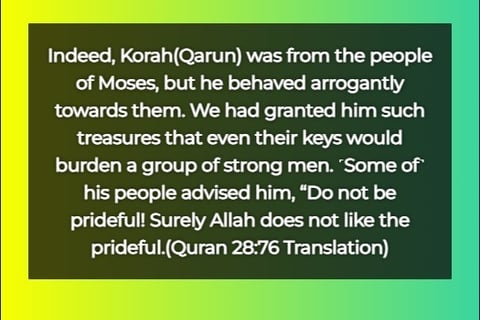



























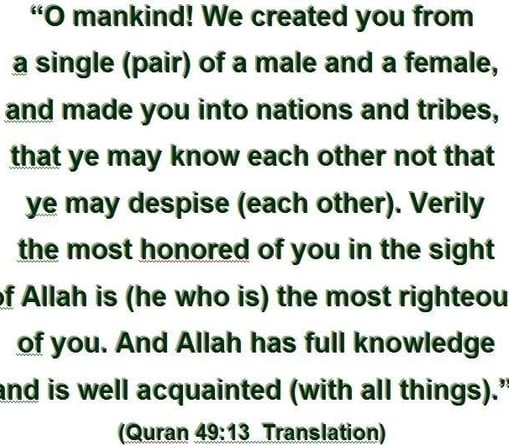

https://quran.com/14 (Surah Ibrahim)
https://quran.com/14 Surah Ibrahim
وَإِذْ قَالَ إِبْرَٰهِيمُ رَبِّ ٱجْعَلْ هَـٰذَا ٱلْبَلَدَ ءَامِنًۭا وَٱجْنُبْنِى وَبَنِىَّ أَن نَّعْبُدَ ٱلْأَصْنَامَ ٣٥
˹Remember˺ when Abraham prayed, “My Lord! Make this city ˹of Mecca˺ secure, and keep me and my children away from the worship of idols.
(Quran 14:35)
رَبِّ إِنَّهُنَّ أَضْلَلْنَ كَثِيرًۭا مِّنَ ٱلنَّاسِ ۖ فَمَن تَبِعَنِى فَإِنَّهُۥ مِنِّى ۖ وَمَنْ عَصَانِى فَإِنَّكَ غَفُورٌۭ رَّحِيمٌۭ ٣٦
My Lord! They have caused many people to go astray. So whoever follows me is with me, and whoever disobeys me—then surely You are ˹still˺ All-Forgiving, Most Merciful.
(Quran 14:36)
رَّبَّنَآ إِنِّىٓ أَسْكَنتُ مِن ذُرِّيَّتِى بِوَادٍ غَيْرِ ذِى زَرْعٍ عِندَ بَيْتِكَ ٱلْمُحَرَّمِ رَبَّنَا لِيُقِيمُوا۟ ٱلصَّلَوٰةَ فَٱجْعَلْ أَفْـِٔدَةًۭ مِّنَ ٱلنَّاسِ تَهْوِىٓ إِلَيْهِمْ وَٱرْزُقْهُم مِّنَ ٱلثَّمَرَٰتِ لَعَلَّهُمْ يَشْكُرُونَ ٣٧
Our Lord! I have settled some of my offspring in a barren valley, near Your Sacred House, our Lord, so that they may establish prayer. So make the hearts of ˹believing˺ people incline towards them and provide them with fruits, so perhaps they will be thankful.
(QURAN 14:37)
رَبَّنَآ إِنَّكَ تَعْلَمُ مَا نُخْفِى وَمَا نُعْلِنُ ۗ وَمَا يَخْفَىٰ عَلَى ٱللَّهِ مِن شَىْءٍۢ فِى ٱلْأَرْضِ وَلَا فِى ٱلسَّمَآءِ
Our Lord! You certainly know what we conceal and what we reveal. Nothing on earth or in heaven is hidden from Allah.
(Quran 14:38)
ٱلْحَمْدُ لِلَّهِ ٱلَّذِى وَهَبَ لِى عَلَى ٱلْكِبَرِ إِسْمَـٰعِيلَ وَإِسْحَـٰقَ ۚ إِنَّ رَبِّى لَسَمِيعُ ٱلدُّعَآءِ ٣٩
All praise is for Allah who has blessed me with Ishmael and Isaac in my old age. My Lord is indeed the Hearer of ˹all˺ prayers.
(QURAN 14:39)
رَبِّ ٱجْعَلْنِى مُقِيمَ ٱلصَّلَوٰةِ وَمِن ذُرِّيَّتِى ۚ رَبَّنَا وَتَقَبَّلْ دُعَآءِ ٤٠
My Lord! Make me and those ˹believers˺ of my descendants keep up prayer. Our Lord! Accept my prayers.
(Quran 14-40)
رَبَّنَا ٱغْفِرْ لِى وَلِوَٰلِدَىَّ وَلِلْمُؤْمِنِينَ يَوْمَ يَقُومُ ٱلْحِسَابُ ٤١


